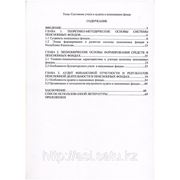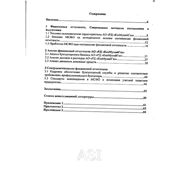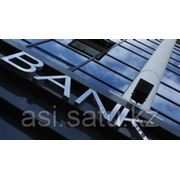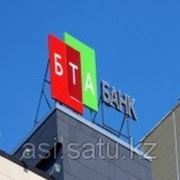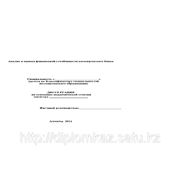Securities Market and it's Features in the Republic of Kazakhstan, Алматы
Описание товара
Securities Market and it's Features in the Republic of Kazakhstan
Table of Contents
INTRODUCTION
CHAPTER I. THEORETICAL ASPECTS OF SECURITIES MARKET
- Main definitions of securities
- Types of Securities
- Structure of Security Market
- Methods of valuation of Securities
- Securities Market regulation, World practice
CHAPTER II. PRACTICAL ASPECTS OF STOCK EXCHANGE AND SECURITIES TRANSACTIONS ON THE STOCK EXCHANGE
- General information about Stock Exchange
- Organization of Security transactions in the Stock Exchang
- Financial analysis of Securities market of Republic of Kazakhstan
CHAPTER III. CURRENT ISSUES, PROBLEMS AND THE PROSPECTS OF DEVELOPMENT OF STOCK EXCHANGE AND SECURITIES TRANSACTIONS IN RK
- Main problems of development of Securities Market in RK
- Influence of financial crisis on the KASE and its consequences
- Strategy of Development of KASE
CONCLUSION
LIST OF USED LITERATURE
INTRODUCTION
Securities markets play a crucial role in economic growth and financial stability. The primary purpose of securities markets is to serve as a mechanism for the transformation of savings into financing for the real sector, thus constituting an alternative to bank financing. Markets provide the best (albeit sometimes imperfect) mechanism for asset pricing. Markets are also a mechanism through which risk is transferred and risk exposure diversified—which allows firms to unlock capital for new investments. Risk transfer and pricing mechanisms in the market allow financial institutions, such as banks and insurance companies, to manage risk more efficiently; and markets may therefore work as a buffer for disruption of banking system and therefore contribute to financial stability. The more efficient markets are, the better these outcomes are achieved and the greater the contribution to the economy.
While the role of securities markets is more meaningful in developed economies, there is evidence of the growing importance of securities markets in emerging market and developing countries. In many emerging market and developing countries, securities markets are beginning to gain a place as a source of financing for the corporate sector, although in most markets this is initially restricted to the larger corporate players. Along with private and public pension funds, collective investment schemes have become important players in many developing and emerging market countries and their demand for suitable investments is driving development.
My work examines the strengths and weaknesses of securities regulatory systems worldwide with a view to a better understanding of common problems and areas of global concern. In doing so, we contribute to the depth of understanding of the state of regulation of securities markets around the world and enable others to further explore the connections between securities regulation and systemic risk and securities regulation and market development.
Our research suggests that securities regulatory systems suffer from persistent weaknesses in a number of countries and there is an urgent need for improvement. We have used the unique set of data produced under the IMF and World Bank Financial Sector Assessment Program (FSAP)—which entails a systematic assessments of regulatory systems—to examine problem areas and explore the connection to income level of the country and possible regional trends. We found that a consistent theme emerges regarding the lack of ability of regulators in many countries to effectively enforce compliance with existing rules and regulation. A combination of factors, including the lack of power and authority, a lack of resources and skill, and the lack of political will has undermined the regulator's ability to effectively execute regulation. This is a particular problem in areas of increased complexity—such as valuation of assets and risk management practices and internal controls requirements for market participants and trading systems
Despite the growing understanding of the role that securities markets play, we find that the systemic importance of securities regulation has been neglected as a topic of academic study. It has been argued, most famously, in remarks by the former Chairman of the Federal Reserve Board, Alan Greenspan, that a financial sector that is well-rounded and does not rely entirely on the banking sector is less vulnerable to external shocks. Yet there have been few attempts to examine the effects of securities regulation, or regulatory weaknesses, on stability and growth.In general, the stock market can be defined as a seteconomic relations over the issue and circulation of securities betweenparticipants. Securities Market - is an integral part of any marketcountry.
Classification of securities markets have many similarities withclassifications of the securities themselves.
so distinguished:
- International and national securities markets;
- National and regional (territorial) securities markets;
- Shopping specific types of securities (stocks and bonds);
- Market for government and corporate securities;
- Shopping primary and derivative securities meaning of a classification of the securities market is determined by its practical importance.
Securities Market (RZB) - market share of loan capital, whereshall issue and sale of securities. In stocksecurities (banks, specialized credit institutions and the Stock Exchange) accumulating cash savings businesses, individuals andStates and are directed to productive and nonproductive einvestment capital.
RZB is an effective mechanism for reallocation of financial resources and the reallocation of capital.
Securities Market in Kazakhstan was absent altogether, and its developmenttakes time, because directly connected with the transformation of attitudes towardsproperty (especially the privatization and capitalization State-owned enterprises) and change the whole nature of the financial state policy.
LIST OF USED LITERATURE
- President of the Republic of Kazakhstan having the force of law, from 24.04.95 № 2235 "On taxes and other payments to the budget."
- Republic of Kazakhstan Law № 355-1 ZRK of 03/31/1999 "On amendments and additions to the equations of Presidential Decree having the force of law" On tax-Gah and other mandatory payments to the budget »№ 2235 from 04.24.1995".
- RK Law № 357-1 ZRK of 04/01/2000 "On budget system".
- RK Law № 359-1 ZRK of 04/01/2000 amending and supplementing the Law of the Republic of Kazakhstan "On republican budget for 2001
- President of the Republic of Kazakhstan having the force of law, from 24.04.95 № 2235 "On taxes and other payments to the budget."
- Republic of Kazakhstan Law № 355-1 ZRK of 03/31/1999 "On amendments and additions to the equations of Presidential Decree having the force of law" On tax-Gah and other mandatory payments to the budget »№ 2235 from 04.24.1995".
- RK Law № 357-1 ZRK of 04/01/2000 "On budget system".
- RK Law № 359-1 ZRK of 04/01/2000 amending and supplementing the Law of the Republic of Kazakhstan "On republican budget 2001".
- Kovalev, VM The General Theory of Finance. - M., 1997
- Drozdov, GN The General Theory of Finance. - M., 1996
- Artemenko GN Financial analysis. - M., 1998
- Efimov, TP Financial control. - M., 1998
- Borisov, EF Economic theory. - M.: Yurist, 1997
- The course of economic theory. Ed. Chepourin MN, Kiseleva EA - Kirov: ASA, 1998.
- Sheremet AD. Sayfulin RS Finance companies. Textbook. Moscow: Infra-M, 1998.
- President's message to the people of Kazakhstan.
- Development Strategy 2030
- The economic security of the country: customs methods and means of ensuring it: Abstracts of scientific - practical conference. - Moscow: RIO RTA, 1995. 28. Legal Encyclopedia / under total. Ed. BN Topornina. M., 2001.
- Koshanov A. The integration of Kazakhstan into the international trading system and WTO / Al Paris. 1999. № 6. - S. 47-51.
- Ognivtsev VA World Trade Organization (WTO): the basic rules and norms, the question of accession. - Division of International Trade and natural resources, the secretariat of UNCTAD (UN Conference on Trade and Development). - Almaty, 1999, September. - S. 12.
- Khasanov, MA Kazakhstan's accession to WTO: opportunities and venture / Energy in Kazakhstan. 1999. № 6.
- World Trade Organization. Trade: Looking Ahead / 0bzor. 1995.
- The WTO. The Uruguay Round. Module 1: FAQs. Overview. Section: The WTO. Unit: WTO vs GATT. 1999.
- Chmel, GN Malaya Customs Encyclopedia, Ed. VG Draganov. M., 1997.
- Chernyshov SV Mechanism of regulation of international trade: the norms and rules of GATT: Sat. scientific publications. VNIKI, 1996. S. 29-30.
- Economics of Customs: Textbook .- method book. - Moscow: RIO RTA, 1997.
- G. Mueller, Gernon X., Miike G. Accounting: An International Perspective. Moscow: Finance and Statistics. 2006. - 138s.
- Barkhatov AP International Accounting: Study Guide. - Moscow: Publishing and Book Trade Center "Marketing", 2001. - 288.
- Anoufriev VE On reforming Kazakhstan's system of accounting and reporting. Bulletin of Accountant, 2005. Number 8 - with. 22-2
- Blake, J., Omata O. European accounting. Moscow: Filin, 2007. - 178s.
- Sokolov YV Accounting: From the origins to the present day: the manual. M: Audit: UNITY, 2006. - 317s.
- Stukov SA, Stukov LS International standardization and harmonization of accounting and reporting. MA: Accounting, 2003. - 144s.
- Kurmantaeva AS Accounting: the domestic system and international standards .- Karaganda, 2005. - 486s.
- Accounting Reform. / Comp. V. Skala and Dr. A.: Lem, 2005. - 48s.
- Needles B., Anderson, H., Caldwell D. Accounting Principles. M., 2003. - 168s.
- International Accounting Standards: A Textbook. allowance. - 3rd ed. Ed.
- Nurseitov EO Accounting in organizations. Almaty, 2007. - 472b.
- Kamyshanov PI, Barsukov IV, Gustyakov IM Accounting: the domestic system and international standards .- Moscow: ID FBK-PRESS, 2002 .- 520 sec.
- International Financial Reporting Standards .- A.: Asker, 2005. -518s.
- Guidelines on the Application of International Accounting Standard (IAS) 7 Statement of Cash Flows. " Recommended for use by Advisory Board of the Ministry of Finance of the Republic of Kazakhstan on accounting and auditing according to the protocol of 24.01.2005 N 1.
- Solov'eva OV Foreign accounting and reporting standards. - M.: Research Press, 2003. - 232C.
Похожие услуги от « ASI»
Услуги, похожие на Securities Market and it's Features in the Republic of Kazakhstan
Вы можете приобрести товар Securities Market and it's Features in the Republic of Kazakhstan в компании ASI через наш сайт. Стоимость составляет 30000 Тенге, а минимальный заказ - 1 шт. На данный момент товар находится в статусе "в наличии".
Компания ASI является зарегистрированным поставщиком на сайте BizOrg.su.
Служебная информация:
На нашей площадке для удобства, каждой компании присвоен уникальный ID. ASI имеет ID 161747. Securities Market and it's Features in the Republic of Kazakhstan имеет ID на сайте - 7501207. Если у вас возникли сложности при работе с компанией ASI – сообщите идентификаторы компании и товара/услуги в нашу службу технической поддержки.
Дата создания модели - 16/09/2013, дата последнего изменения - 14/04/2020. За все время товар был просмотрен 1146 раз.

